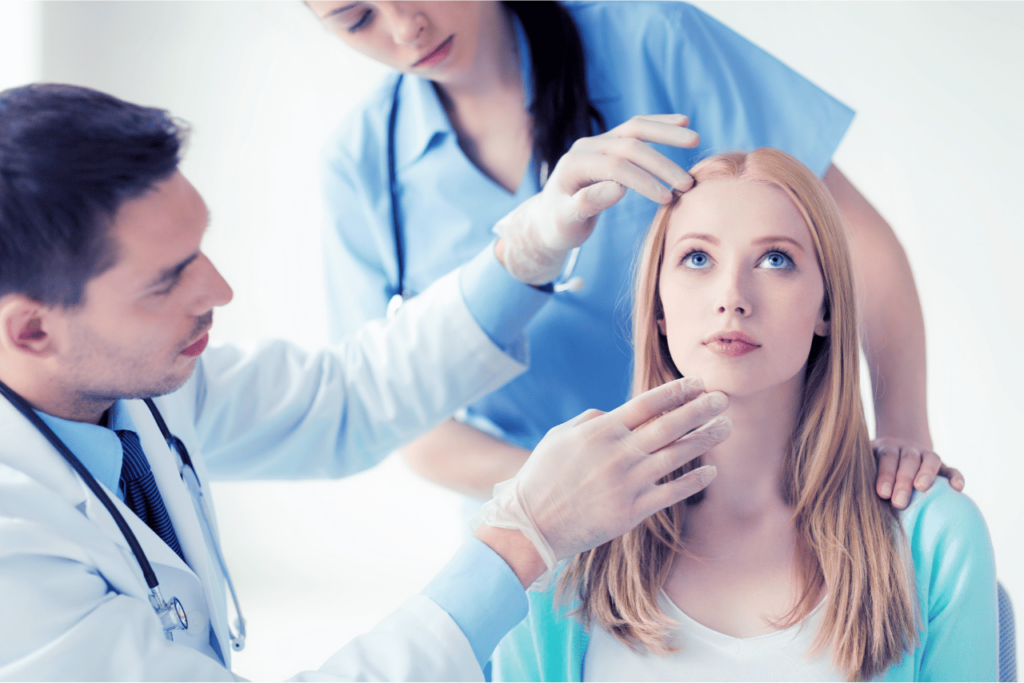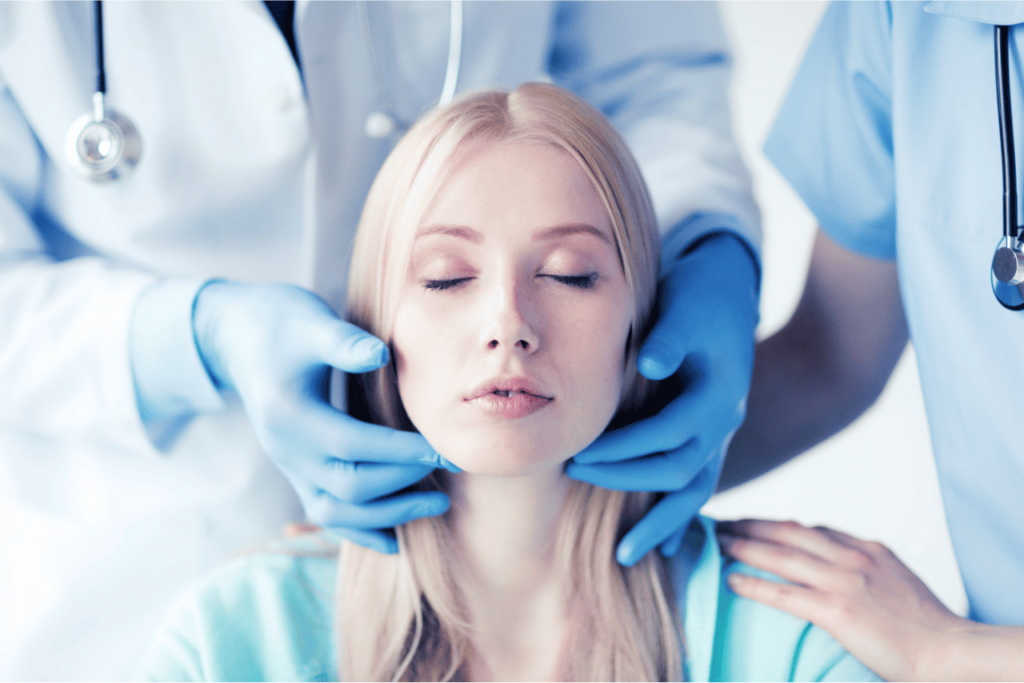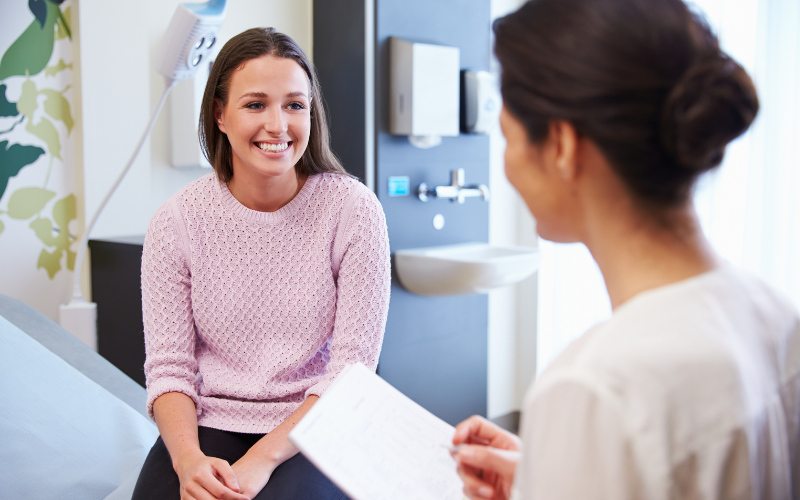Have you been thinking about getting lip fillers to enhance your gorgeous smile? If you’re like me, the idea of having fuller, more luscious lips is super exciting. But before you book that appointment, there are some crucial tips on what to avoid before lip fillers to ensure your experience is as smooth and fabulous as possible.
Imagine walking into your lip filler appointment feeling completely prepared, knowing exactly what to expect and what to avoid. No surprise bruising, no extra swelling—just beautiful, plump lips ready to make an impression. Sounds perfect, right?
You’re in the right place! In this blog post, I’ll guide you through all the pre-procedure no-nos you need to know about before getting lip fillers. From which medications to skip to lifestyle changes that can make a big difference, we’ve got all the tips you need.
Let’s get started and make sure you know what to avoid before lip fillers!
Table of Contents
What To Avoid Before Lip Fillers
Lip fillers are a popular injectable treatment for those who want to enhance the fullness of their lips. While the process itself is relatively quick, usually taking around 5 to 10 minutes for the injections, preparing for the treatment is an important step to ensure the best results and minimize potential side effects such as bruising or swelling. Proper preparation involves a few key steps and some important things to avoid.
What To Avoid Before Lip Fillers: Getting Ready
Getting ready for your lip filler appointment involves avoiding certain medications and lifestyle habits to ensure the best results with minimal complications.
Medications and Supplements to Avoid
Before getting lip injections, you should steer clear of blood-thinning medications and specific supplements that might increase the risk of bleeding and bruising. These include:
- Aspirin
- Ibuprofen (Advil, Motrin)
- Naproxen (Aleve)
- Herbal supplements such as:
- Vitamin E
- Gingko Biloba
- Fish oil supplements
The avoidance of these should begin at least one week before the appointment to ensure they are sufficiently out of one’s system.
Related: Please see my post on how to reduce swelling after lip fillers fast!
Pre-Treatment Lifestyle Considerations
In the days leading up to your dermal filler treatment, you should modify certain behaviors to reduce the risk of side effects:
- Alcohol consumption should be avoided 24 hours before the procedure to decrease the risk of swelling and bruising.
- Avoid strenuous activities like heavy exercise, which might exacerbate swelling or cause the filler to migrate. This should be avoided for at least 24 hours before and after the treatment.
- It’s also wise to inform the practitioner about any medical conditions that might affect the treatment outcome.

What To Avoid Before Lip Fillers: Best Practices
In preparation for lip fillers, individuals can take proactive steps to ensure a smoother procedure with fewer complications, such as bruising, and to effectively manage common side effects.
To Minimize Bruising
Before a lip filler appointment, patients should avoid products that increase the risk of bruising. Here’s a handy checklist to help:
- Avoid blood thinning medications: At least a week before the procedure, stop taking aspirin, ibuprofen, and other over-the-counter pain relievers that can thin the blood.
- Steer clear of alcohol: 24 hours before the injections, patients should not consume alcoholic beverages as alcohol can also cause blood thinning.
- Consider supplements like Arnica: Starting Arnica two days before the procedure might help reduce bruising, though it’s not mandatory.
Applying an ice pack to the injection sites immediately before and after the procedure can be effective in minimizing swelling and bruising.
How to Handle Common Side Effects
After receiving lip fillers, patients often experience side effects such as swelling and discomfort. Here are practical steps to manage them:
- Numbing cream: To reduce pain, patients might opt for a topical anesthetic or numbing cream before the procedure. This helps make the injections more comfortable.
- Aftercare: Post-procedure, using an ice pack can help alleviate swelling and discomfort at the injection sites.
- Follow-up: If there are any unusual or persistent side effects, individuals should contact their provider for guidance.

What to Expect After Lip Filler Injections
After getting dermal fillers, you should anticipate a period of swelling which is quite normal. Let me explain the normal healing process and how to achieve the best possible effects from your first treatment.
The Healing Process Explained
Immediately following lip filler injections, it’s common for the treated area to experience swelling and possibly some bruising. This is part of the normal healing process. Ice can be applied to alleviate these symptoms, though it’s important to use a cloth barrier to avoid direct skin contact. Here’s a simple checklist to note during this phase:
- Apply ice: Use a cloth-wrapped ice pack intermittently for short periods.
- Expect swelling: Swelling peaks within the first 48 hours before subsiding.
- Be gentle: Avoid rubbing or pressing on the treated area.
Swelling is typically most noticeable for the first few days, decreasing gradually over the following week. If you have a big event or social gathering, scheduling the lip filler treatment at least two weeks prior is advisable to allow full healing and to enjoy the final results.
Following Up for Best Results
A follow-up appointment is a crucial step in achieving the best results from dermal fillers. This visit allows the provider to assess the healing progress and make any necessary adjustments:
- Schedule check-up: Arrange a follow-up visit as recommended. This is usually two weeks post-treatment.
- Report concerns: If there are any issues or irregularities, report them.
Optimal results are seen once the hyaluronic acid filler has settled and any side effects have dissipated. Patients often see their final results after the initial healing process, which can take around two weeks.
Regular appointments ensure that the effects of the fillers are maintained.
What To Avoid Before Lip Fillers FAQ Section
Are dermal fillers safe?
Dermal fillers, especially those containing hyaluronic acid, are generally safe when administered by skilled professionals, such as a plastic surgeon or trained healthcare provider.
What is the best way to prepare for a lip filler procedure?
The best way to prepare is by avoiding blood-thinning medications and supplements, staying hydrated, and discussing your medical history with your healthcare provider.
Can I undergo dental procedures before my lip injections?
It’s best to avoid dental procedures shortly before and after dermal filler injections to minimize potential risks and ensure the best possible results.
What to avoid before lip fillers?
Before lip fillers, avoid non-steroidal anti-inflammatory drugs, alcohol, and blood-thinning supplements like St. John’s Wort to minimize bruising and swelling.
What should I do if I have a history of cold sores?
Inform your healthcare provider if you have a history of cold sores before undergoing lip augmentation, as treatment may be needed to prevent an outbreak.
Can I eat anything before my lip filler procedure?
Avoid salty foods and fresh pineapple before your procedure, as they can increase swelling. Drinking plenty of water is a good idea for hydration.
Should I avoid sun exposure after getting lip fillers?
Yes, avoiding sun exposure and extreme temperatures, such as hot tubs, helps reduce the risk of complications and ensures optimal healing after your lip filler procedure.
Can lip fillers correct an uneven upper lip?
Yes, lip fillers can enhance an uneven upper lip by adding volume and symmetry, improving the overall appearance of your lips.
What is a lip flip, and how does it differ from lip fillers?
A lip flip uses Botox to relax the muscles around the lips, creating a fuller appearance, while lip fillers add volume directly to the lips.
Are there any specific medications to avoid before lip fillers?
Avoid prescription blood thinners and over-the-counter medications like aspirin, ibuprofen, and non-steroidal anti-inflammatory drugs to reduce the risk of bruising and bleeding.
What type of filler is used for lip augmentation?
Hyaluronic acid is a commonly used type of filler for lip augmentation, as it is a naturally occurring substance in the body and provides natural-looking results.
What should I do after my first-time lip filler procedure?
After your first-time lip filler procedure, avoid strenuous exercise, sun exposure, and extreme temperatures. Follow all aftercare instructions provided by your healthcare provider for the best possible results.
Can lip fillers affect blood vessels in the lips?
Yes, lip fillers can temporarily affect blood vessels, which is why it’s important to avoid activities that increase blood flow to the treatment area immediately after the procedure.



![Read more about the article How to Reduce Swelling After Lip Filler Fast [2024]](https://lipslashesandnails.com/wp-content/uploads/2024/03/Howto-Reduce-Swellingafter-lip-filler-fast-300x188.png)
![Read more about the article Lip Filler vs Lip Injections: Best Augmentation [2024]](https://lipslashesandnails.com/wp-content/uploads/2024/04/Lip-Filler-vs-Lip-Injections-300x188.png)

Pingback: Do lip fillers hurt? How Painful are First Injections?
Pingback: A Complete Guide: Choosing The Best Lip Injections in 2024
Pingback: How Many Juvederm Syringes for Lips? A Quick Guide